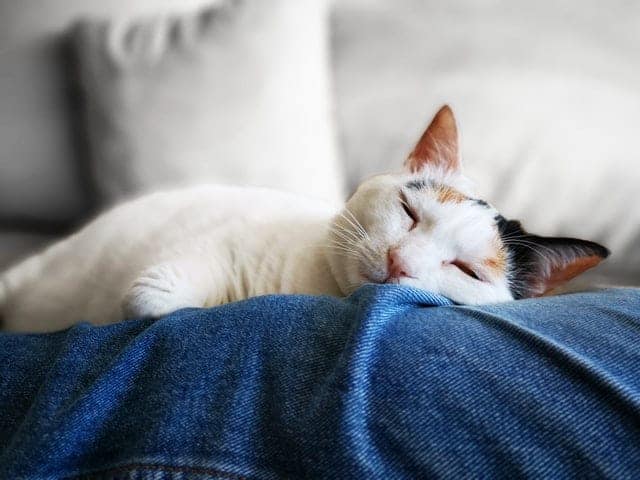
The cat is a desert animal, predisposed to the development of kidney stones. How do they manifest themselves, what are the cures and how to avoid them?
There are diseases that can affect both felines and humans. This is precisely the case with kidney stones, which also manifest themselves in cats. Let’s see together how to identify and treat them promptly, with an eye to prevention to protect the health of our four-legged friend.
What are kidney stones in cats
Also known as uroliths, kidney stones in cats consist of an accumulation of minerals within the urinary tract. As is understandable, this condition is very annoying for the cat, especially at the time of urination.
Depending on the chemical composition of the minerals, it is possible to distinguish different types of calculations. Among the most common ones that manifest themselves in the feline are:
- Calculations of uric acid, also called urate, which consists in the degradation of purine, that is an organic molecule that can be taken in excessive quantities through food;
- Struvite stones, provoked by magnesium;
- Calcium oxalate stones, composed of calcium and oxalic acid, are especially difficult to remove;
- Cystine stones usually occur when the cat has congenital defects in the kidneys.
What are the risks of kidney stones in cats? In addition to the appearance of urinary tract infections, if not timely treated, in just two weeks uroliths can cause kidney failure in the cat and provoke the death of the animal.
What are the causes and how they manifest themselves
What causes the onset of kidney stones in the cat? Sometimes, they may be due to a congenital problem of the cat. In other cases, however, to the administration of drugs for the treatment of other pathologies or to an incorrect and unbalanced diet.
What are the symptoms of kidney stones in cats? Let’s find out the most common manifestations of this pathology:
- The animal pees little, but very often;
- The cat spends a lot of time inside the litter box without being able to urinate;
- There are traces of blood in the cat’s urine;
- The cat repeatedly licks its private parts;
- The animal experiences pain when urinating and can express it through meows and moans.
In addition to these specific symptoms, more generic behaviors may also occur, which indicate malaise in the animal:
- Stress;
- Weakness;
- Vomiting;
- Lack of appetite.
Diagnosis and treatment
What to do in case of uroliths in the cat? It is necessary to intervene promptly, taking the cat to the veterinarian. The professional may ask you to collect a sample of its pee, to proceed with the urinalysis.
Among other necessary examinations and investigations, there is a complete and thorough examination of the cat, during which palpation of the cat’s abdomen is carried out, to detect the presence of swelling and pain.
In addition, to verify the type of stones from which the animal is affected, it will be necessary to examine a sample of it through laboratory tests. How do you treat kidney stones in cats? Depending on the type of uroliths and the severity of the situation, different solutions may be used:
- Change of feeding, the cat will have to follow a special diet, taking medicated feed;
- Surgical intervention: in the case of oxalate stones, it will be necessary to subject the animal to an operation for the removal of uroliths. It is a routine operation, which requires post-operative monitoring to avoid recurrence;
- Catheter, can be used to eliminate stones from the bladder, but causes a lot of discomfort to the cat;
- Medications, you will have to give orally to the cat anti-inflammatories and antibiotics, to relieve pain and fight any infections.
In addition to medical therapies, it is important to ensure that the cat drinks fresh water, which will contribute to the dissolution of uroliths. The recommended dose ranges between 50 and 100 ml per 1 kg of cat weight per day.
How to prevent kidney stones in cats

What to do to prevent the onset of kidney stones in the cat? Let’s see all the measures to protect the health of the cat.
- Clean water always available: a fundamental element for the well-being of all living beings, make sure that the cat takes enough, always providing it fresh and clean.
- Balanced feeding: alternate the use of dry and wet feed, verifying that they contain a reduced amount of salt.
- Periodic check-ups: monitors the state of health of the cat, taking it every 6 months to the veterinarian and requesting to carry out the urine test.






